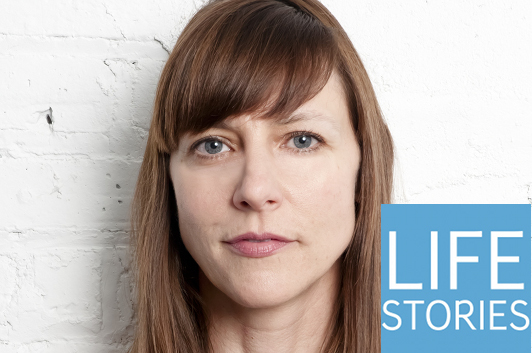Life Stories #57: Jonathan Wilson
Subscribe to Life Stories in iTunes
In this episode of Life Stories, I chat with Jonathan Wilson about Kick and Run, a “memoir with soccer ball” that begins with his growing up in midcentury London to his life as a father, fiction writer and now memoirist in the United States—with football serving as the common element throughout. So we talk about everything from the unsupervised games of his childhood to his arrival in New York City in 1976 (when Americans didn’t yet know much about the sport) to covering the 1994 World Cup for The New Yorker to coaching his own children’s youthful soccer matches.
Oh! And we had this conversation before the group stages for the 2014 World Cup were announced, but I suspect that if we were to talk now he’d be just as pessimistic about England’s chances in Brazil—and maybe even just as politely encouraging about the American team—as he was then. (There’s also a point where, discussing how other international teams often draw more fans to matches than the U.S. squad, I suggest it would be silly for the U.S. to play Portugal at Fenway Park; I realized much later I must have been subconsciously thinking of a Celtic-Sporting friendly that actually did take place there.)
This is the final episode of Life Stories for 2013, and a lot has happened with the podcast these last twelve months! It’s a fantastic opportunity, getting to talk to so many memoir writers about their lives and the art of writing memoir, and I’m looking forward to what 2014 has in store. Thanks for listening!
Listen to Life Stories #57: Jonathan Wilson (MP3 file); or download this file by right-clicking (Mac users, option-click). Or subscribe to Life Stories in iTunes, where you can catch up with earlier episodes and be alerted whenever a new one is released. (And if you are an iTunes subscriber, please consider rating and reviewing the podcast!)
16 December 2013 | life stories |
Life Stories #56: Beth Lisick
Subscribe to Life Stories in iTunes
In this episode of Life Stories, I meet up with Beth Lisick, a writer I’ve been a fan of for nearly twenty years since she was doing spoken word performances in clubs in San Francisco. There’s some scenes from that part of her life that make it into Yokohama Threeway and Other Small Shames, but the book also reached back to her early childhood and to fairly recent events—it’s not a conventional memoir so much as a collection of fragmentary moments of embarrassment and mortification and humiliation. Here’s what she told me about how it came together, after she’d become frustrated with the autobiographical writing she’d been doing for mainstream publishers over much of the last decade:
“I was really tired of trying to write about myself in this way where I was creating a character, and I had to make that character funny, yet smart, yet accessible, yet a little bit crazy… suitable for editors at a big publishing house to say, ‘Oh, this is relatable! You seem so nice and a little messed up, a little bit quirky…’ I didn’t like having to present myself in this way that I felt pressured to, so I decided to start writing this novel, and after I began the novel, I thought, okay, I’m never writing about myself again.
And then I remembered: God, I have so many amazing stories that are just little vignettes, little moments really, that aren’t… that never found themselves into essays or big stories, and so it was almost like, for me, the nail in the coffin of autobiographical work, that I was just like, you know what I’m going to do? I’m going to come up with everything I can think of about my life that is funny, interesting, weird, terrible and put it in this book and then move on.”
She describes the reaction from her previous publisher: “Oh, you know, I think what we really need is just ten longer, funny essays and if you want to do that, we’d love to publish it.” But she felt that this way the way this book needed to be written, which is why it ended up at the indie publishing house City Lights. We get into some more details of the frustrations she felt with those earlier autobiographical personas (especially the molds that other people wanted to cast her into), then talk about things like the tensions between creative freedom and financial success and what it’s like to define yourself by your failures. Among other topics.
There was a moment earlier this year, in my conversation with Dani Shapiro, where we discussed the idea of memoir as picking at the deepest wounds, and I think you can apply that metaphor to Yokohama Threeway—except that Beth is paying attention to a broad series of cuts and scrapes, leaving any larger narrative unspoken. It’s not quite poetry, but it’s more than simple prose, and its intimacy sneaks up on you.
Listen to Life Stories #56: Beth Lisick (MP3 file); or download this file by right-clicking (Mac users, option-click). Or subscribe to Life Stories in iTunes, where you can catch up with earlier episodes and be alerted whenever a new one is released. (And if you are an iTunes subscriber, please consider rating and reviewing the podcast!)
9 December 2013 | life stories |



 Our Endless and Proper Work is my new book with Belt Publishing about starting (and sticking to) a productive writing practice.
Our Endless and Proper Work is my new book with Belt Publishing about starting (and sticking to) a productive writing practice. 
